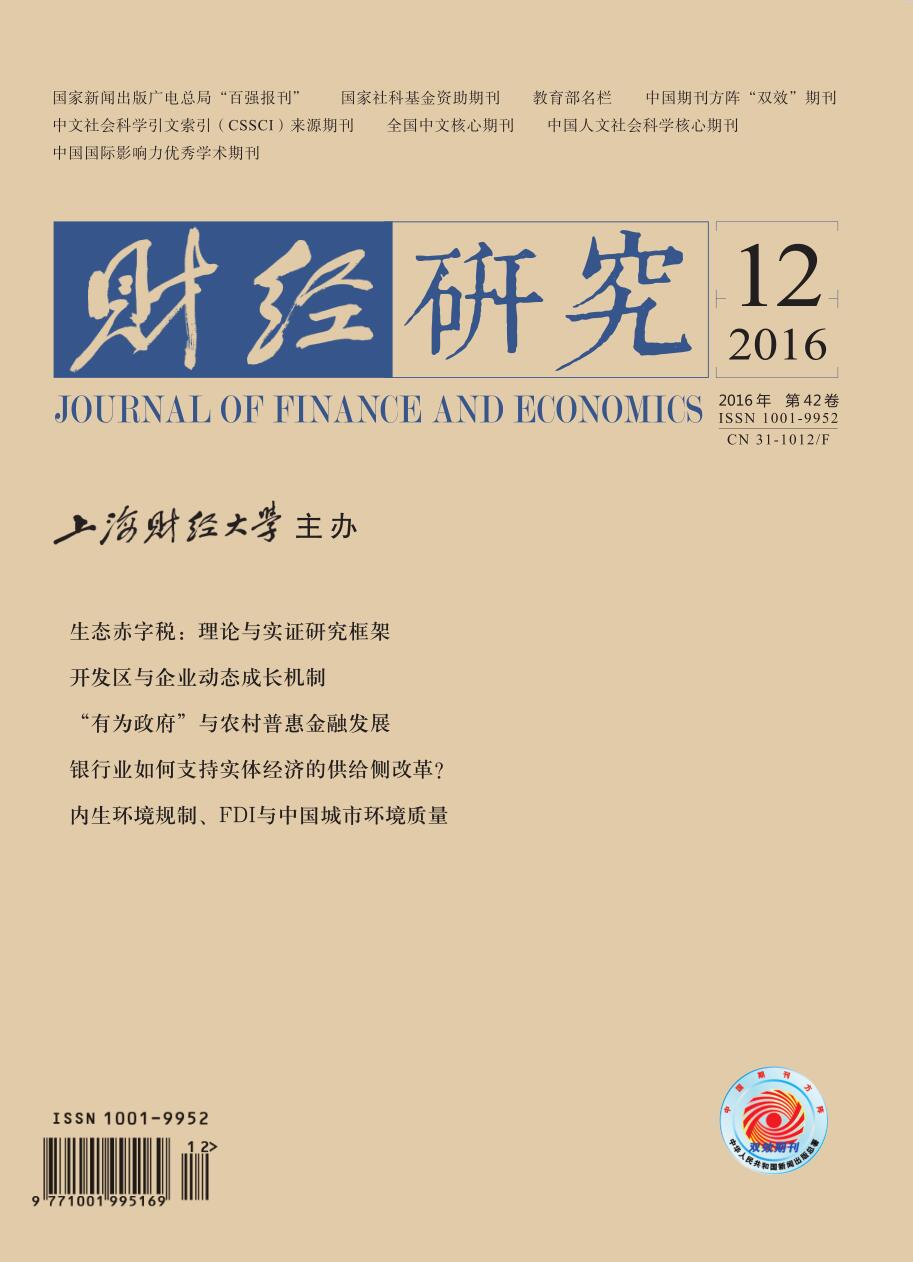关于开放条件下
内生环境规制、FDI与中国城市环境质量
摘要
参考文献
摘要
4 Antweiler W, Copeland B R, Taylor M S. Is free trade good for the environment?[J]. American Economic Review, 2001, 91(4):877-908. DOI:10.1257/aer.91.4.877
5 Birdsall N, Wheeler D. Trade policy and industrial pollution in Latin America:Where are the pollution havens?[J]. The Journal of Environment Development, 1993, 2(1):137-149. DOI:10.1177/107049659300200107
6 Copeland B R, Taylor M S. North-South trade and the environment[J]. The Quarterly Journal of Economics, 1994, 109(3):755-787. DOI:10.2307/2118421
7 Dietzenbacher E, Mukhopadhyay K. An empirical examination of the pollution haven hypothesis for India:Towards a green Leontief paradox?[J]. Environmental and Resource Economics, 2007, 36(4):427-449. DOI:10.1007/s10640-006-9036-9
9 He J. Pollution haven hypothesis and environmental impacts of foreign direct investment:The case of industrial emission of sulfur dioxide (SO) in Chinese provinces[J]. Ecological Economics, 2006, 60(1):228-245.
10 Liang F H. Does foreign direct investment harm the host country's environment? Evidence from China[EB/OL]. http://ssrn.com/abstract=1479864, 2008-11-28.
11 Xing Y, Kolstad C D. Do lax environmental regulations attract foreign investment?[J]. Environmental and Resource Economics, 2002, 21(1):1-22. DOI:10.1023/A:1014537013353
12 Zeng K, Eastin J. International economic integration and environmental protection:The case of China[J]. International Studies Quarterly, 2007, 51(4):971-995. DOI:10.1111/isqu.2007.51.issue-4
引用本文
刘玉博, 汪恒. 内生环境规制、FDI与中国城市环境质量[J]. 财经研究, 2016, 42(12): 119–130.
导出参考文献,格式为:





 7077
7077  5435
5435

